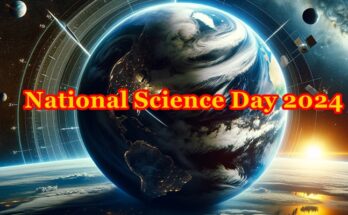
National Science Day Essay: Wonders of discovery unveiled
National Science Day Essay: National Science Day of India is observed every year on 28 February.
National Science Day Essay: Wonders of discovery unveiled Read MoreNews That Worth
Science, Science news, nasa news, space news, alien news, isro news,
Hubble Space Telescope, Hubble Space Telescope news, chandrayaan news, isro, S. Somanath, S. Somanath news, S. Somanath isro, S. Somanath salary, S. Somanath net worth, S. Somanath income,

National Science Day Essay: National Science Day of India is observed every year on 28 February.
National Science Day Essay: Wonders of discovery unveiled Read More
National Science Day 2024: We celebrate 28 February as National Science Day. Wednesday is 28th February, it is important for all of us to know the significance of this day and science in our lives.
National Science Day 2024: Significance of science in our lives Read More
Zydus Worldwide DMCC, a subsidiary of Zydus Lifesciences Ltd and Daewoong Pharmaceutical on Monday announced that they have entered into an exclusive licensing agreement to co-develop and commercialize Leuprolide Acetate for Depot Suspension (RLD: Lupron Depot®, AbbVie) in six dosage strengths for the United States market.
Zydus, Daewoong Pharmaceutical collaborate for development and commercialisation of Leuprolide Acetate for Depot Suspension Read More
As we celebrate World Space Week, it’s only fitting to turn our gaze to the trailblazers who have shaped the landscape of space exploration.
World Space Week Wonders: Discover the Untold Stories of 5 Cosmic Trailblazers! Read More
World Space Week: The history of space exploration is a captivating saga marked by groundbreaking achievements, daring missions, and the relentless pursuit of knowledge beyond our planet. This article provides a comprehensive historical overview of key milestones in space exploration, starting from the monumental launch of the first satellite.
World Space Week: Epic 8 Space Milestones Revealed Read More